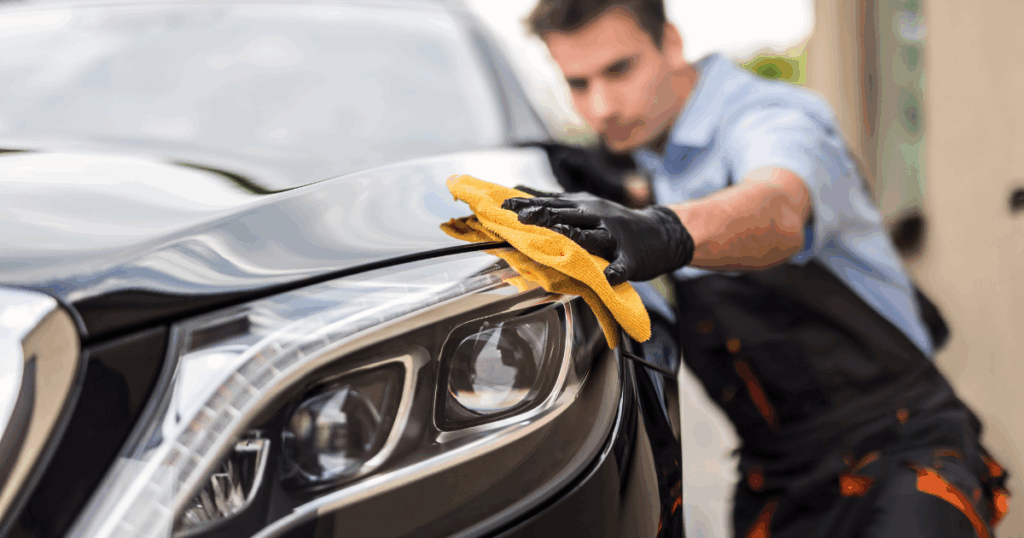
Detail Your Car Before Trading It In: Does It Make a Difference?
When it comes time to part ways with your vehicle, one of the biggest questions many car owners ask is:
“Should I get my car detailed before I trade it in?”
At first glance, detailing your vehicle might seem like a waste of time and money—especially if you’re handing it off to a dealership that’s going to clean it anyway. But here’s the truth: a well-detailed car can significantly impact the trade-in value, how the dealer perceives the condition of the vehicle, and even how smooth the negotiation process goes.
So let’s dive into the pros, cons, and expert insights to help you decide whether car detailing is worth the investment before your trade-in.
What Is Car Detailing, Really?
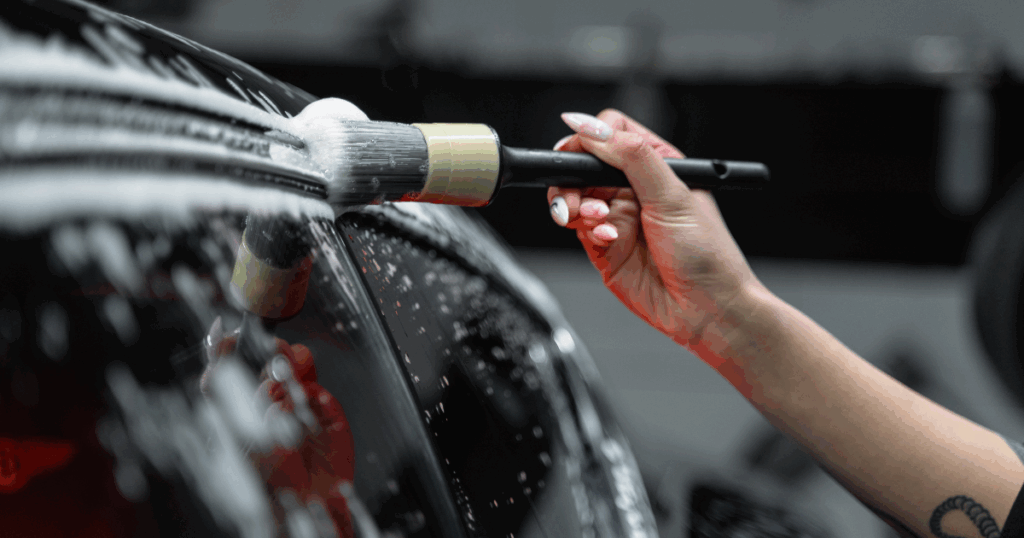
First things first: let’s clear up what “detailing” means.
Car detailing is a deep-cleaning process that goes far beyond a basic car wash. It typically includes:
- Thorough interior vacuuming and shampooing
- Cleaning and conditioning of leather, vinyl, and plastic surfaces
- Steam cleaning of carpets and upholstery
- Hand washing and waxing the exterior
- Engine bay cleaning (optional, but impressive)
- Polishing headlights, tires, and trim
Think of it as giving your car a mini spa day. It’s all about restoring your vehicle to a clean, near-new condition—inside and out.
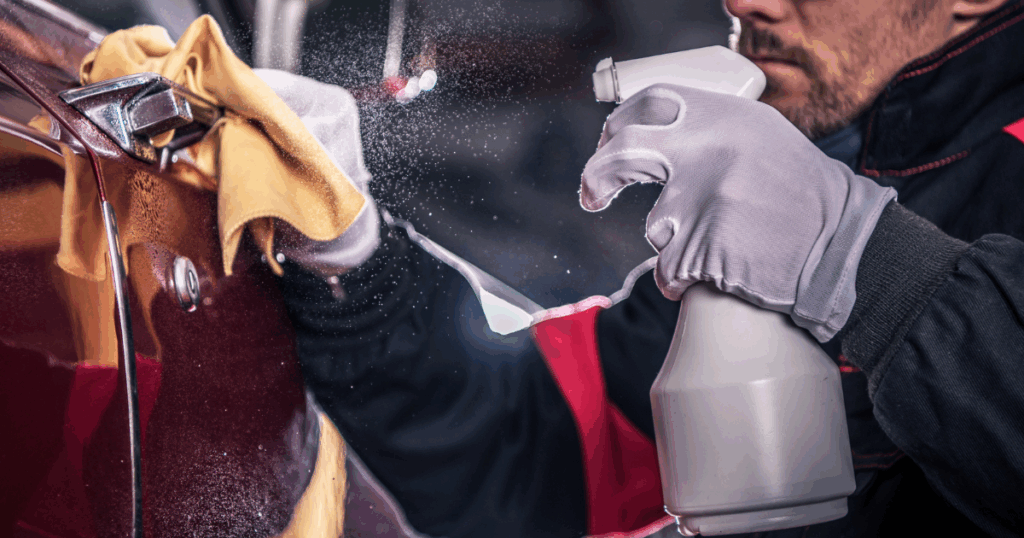
Does a Detailed Car Really Get a Higher Trade-In Value?
In many cases, yes—a clean, well-presented car often fetches a better offer.
Dealerships appraise vehicles based on condition, mileage, service history, and current market value. While mileage and market pricing are out of your control, how your car looks and smells is entirely in your hands.
When a vehicle shows up on the lot clean, polished, and fresh, a few things happen:
- Perceived value goes up. A spotless car appears newer and better cared for.
- Dealers assume less reconditioning cost. That means less money deducted from their offer.
- Trust increases. If the car is clean, they assume it’s been well-maintained mechanically too.
Even something as small as freshening up the interior or polishing the headlights can sway an appraiser’s impression.
Learn more about preparation before you trade your car.

What Do Dealers Actually Look For During Trade-In Appraisals?
To decide if detailing is worth your time and money, it helps to understand how dealerships evaluate cars.
Most dealerships follow a standardized checklist that includes:
- Mechanical Condition
- Engine performance
- Transmission and brakes
- Warning lights or dashboard issues
- Exterior Condition
- Paint scratches, dents, rust
- Headlight clarity
- Tire tread and wheel condition
- Interior Condition
- Cleanliness and odor
- Seat and carpet wear
- Functioning electronics
- Market Demand & Mileage
- How in-demand the make/model is
- How many miles it’s been driven
Here’s the kicker: many of these things are affected by appearance. A clean interior, shiny paint, and dust-free dashboard can leave a stronger impression than you’d expect.
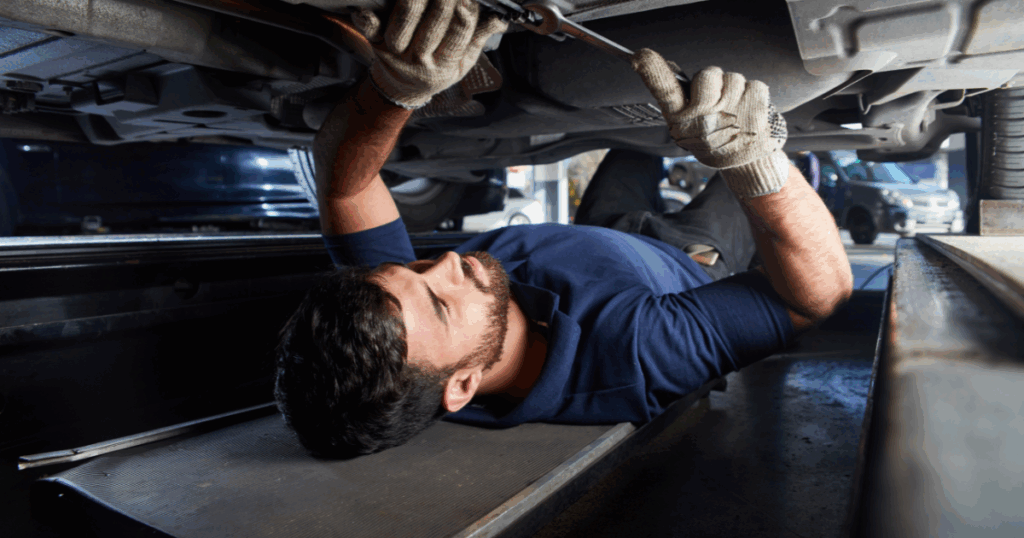
Detailing vs. Basic Cleaning: What’s Enough?
Not ready to shell out $150–$300 for a full detail? That’s totally fair.
Here’s what you should prioritize if you’re going the DIY route:
,Must-Do Cleaning Tasks Before Trading In:
- Vacuum the interior (including under the seats and floor mats)
- Wipe down dashboard, door panels, and cupholders
- Remove all personal items (yes, even that French fry under the seat)
- Wash and dry the exterior
- Clean all windows inside and out
- Wipe down wheels and apply tire shine
Optional Upgrades That Can Add Wow-Factor:
- Apply wax or polish to the exterior
- Use fabric or leather conditioner on seats
- Steam clean carpets (especially if stained)
- Remove minor scratches or swirl marks
- Clean the engine bay (only if done safely)
These small efforts can make your car look better than 80% of trade-ins on the lot.
Real-World Example: The $800 Detail Bonus
Let’s say you’re trading in a 2016 Honda Accord with 85,000 miles.
You get two appraisals:
- One before detailing: The car is dusty, interior smells faintly of coffee, and the mats are stained. Offer: $9,200.
- One after detailing: The car looks and smells fresh, the leather is conditioned, and the paint is glossy. Offer: $10,000.
That’s an $800 difference. The cost of a professional detail? $250 or less.
Not every situation will result in such a dramatic boost, but even a few hundred dollars more can make it a worthwhile return on investment.
When You Might Skip the Detail
While detailing has clear benefits, there are a few situations where it might not be worth the effort:
1. You’re Trading In a Low-Value or Very Worn Car
If your car is older (say, 15+ years), high mileage, or has significant mechanical issues, a detail may not impact value much. Dealers expect to recondition or wholesale these vehicles anyway.
2. The Dealer Is Offering a Flat Trade-In Bonus
Some dealerships run promotions like “$2,000 trade-in bonus regardless of condition.” In that case, detailing may not affect your offer at all.
3. You’re Short on Time or Money
If you need to trade in fast and don’t have the resources for a detail, a solid DIY clean-up is still better than doing nothing.
Should You Tell the Dealer It’s Been Detailed?
You don’t need to—but it doesn’t hurt.
Mentioning that the car has been recently detailed signals that you’re a responsible owner and that the car has been well cared for. It won’t guarantee a higher number, but it helps build trust in the condition you’re presenting.
How Detailing Affects Private Sales vs. Dealer Trade-Ins
Selling privately? Detailing is even more important. Detail your car!
Private buyers don’t have the infrastructure to clean or repair vehicles like a dealer does, so a clean, glossy, great-smelling car is far more appealing—and gives you more leverage to command top dollar.
When trading into a dealership, the return on detailing might be smaller—but it’s still meaningful, especially for mid- to high-value vehicles.
Quick Checklist: Should You Detail Before a Trade-In?
✅ Car is relatively new (5–10 years old)
✅ Value is $5,000+
✅ Interior has visible wear or odors
✅ You plan to negotiate on trade-in value
✅ You want to make a strong first impression
✅ You’re selling a high-demand vehicle
If you said “yes” to 2 or more of these, a detail is likely a smart move.
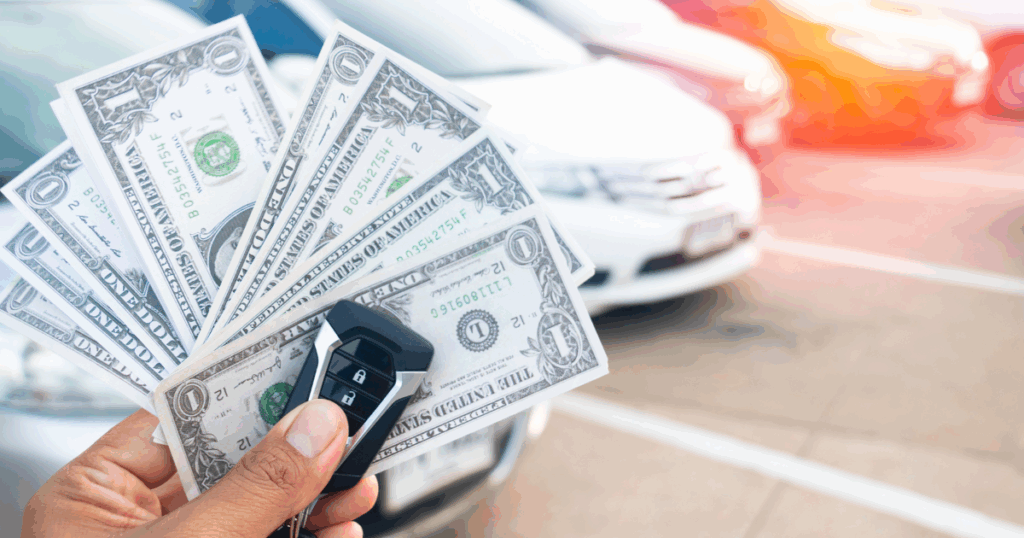
Is Detailing Worth It?
Detailing your car before trading it in isn’t mandatory, but in many cases, it’s a savvy move.
You’re not just cleaning a car—you’re maximizing its presentation, showing pride of ownership, and giving the dealership one less excuse to lowball you. Whether you invest in a full professional detail or just spend an hour cleaning it up yourself, the effort is well worth it.
After all, when a vehicle looks like it’s been loved, it’s often valued that way too.
Ready to Trade In With Confidence?
Whether you’re selling, trading in, or just curious about your car’s value, platforms like Vehbee.com make it easier than ever to get real offers, connect with trusted buyers, and take the stress out of the process.
Smart sellers don’t just list—they prepare. Clean up, level up, and get more for your car.




